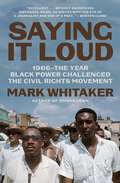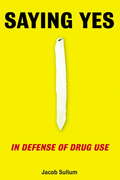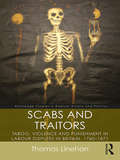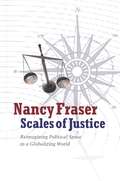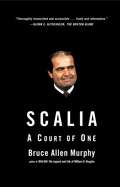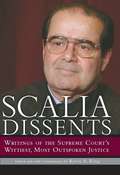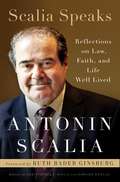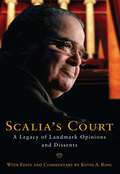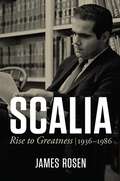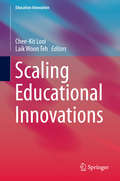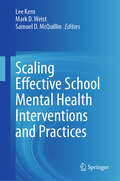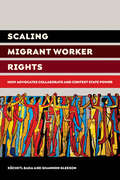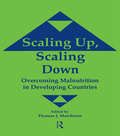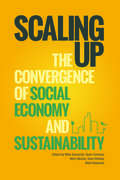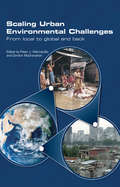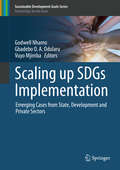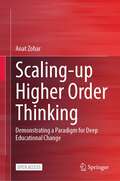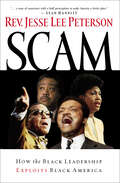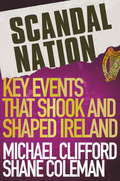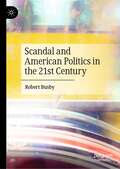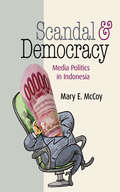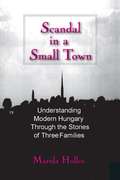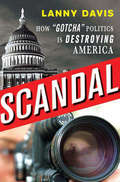- Table View
- List View
Saying It Loud: 1966—The Year Black Power Challenged the Civil Rights Movement
by Mark WhitakerMark Whitaker &“writes with the eye of a journalist and ear of a poet&” (The Boston Globe) to tell the story of the momentous year that redefined the civil rights movement as a new sense of Black identity, expressed in the slogan &“Black Power,&” challenged the nonviolent philosophy of Martin Luther King, Jr. and John Lewis.In &“crisp prose&” (The New York Times) and novelistic detail Saying It Loud tells the story of how the Black Power phenomenon began to challenge the traditional civil rights movement in the turbulent year of 1966. Saying It Loud takes you inside the dramatic events in this seminal year, from Stokely Carmichael&’s middle-of-the-night ouster of moderate icon John Lewis as a chairman of the Student Nonviolent Coordinating Committee (SNCC) to Carmichael&’s impassioned cry of &“Black Power!&” during a protest march in rural Mississippi. From Julian Bond&’s humiliating and racist ouster from the Georgia state legislature because of his antiwar statements to Ronald Reagan&’s election as California governor riding a &“white backlash&” vote against Black Power and urban unrest. From the founding of the Black Panther Party for Self-Defense by Huey Newton and Bobby Seale in Oakland, California, to the origins of Kwanzaa, the Black Arts Movement, and the first Black studies programs. From Reverend Martin Luther King, Jr.&’s ill-fated campaign to take the civil rights movement north to Chicago to the wrenching ousting of the white members of SNCC. Deeply researched and widely reported, Saying It Loud offers brilliant portraits of the major characters in the yearlong drama and provides new details and insights from key players and journalists who covered the story. It also makes a compelling case for why the lessons from 1966 still resonate in the era of Black Lives Matter and the fierce contemporary battles over voting rights, identity politics, and the teaching of Black History.
Saying Yes: In Defense of Drug Use
by Jacob SullumJacob Sullum goes beyond debate on legalization or the proper way to win the "war on drugs," to the heart of a social and individual defense of using drugs. Saying Yesargues that the all-or-nothing thinking that has long dominated discussions of illegal drug use should give way to a wiser, subtler approach. Exemplified by the tradition of moderate drinking, such an approach rejects the idea that there is something inherently wrong with using chemicals to alter one's mood or mind. Saying Yesfurther contends that the conventional understanding of addiction, portraying it as a kind of chemical slavery in which the user's values and wishes do not matter, is also fundamentally misleading. Writing in a lively and provocative style that earned him critical acclaim for his previous book, Sullum contrasts drug use as it is described by politicians and propagandists with drug use as it is experienced by the silent majority of users. The lives they lead challenge a central premise of the war on drugs: the idea that certain substances have the power to compel immoral behavior.
Scabs and Traitors: Taboo, Violence and Punishment in Labour Disputes in Britain, 1760-1871 (Routledge Studies in Radical History and Politics)
by Thomas LinehanIn its broadest sense, this book is concerned with the attempt by workers in Britain during the period 1760–1871 to engage in collective action in circumstances of conflict with their employers during a time when the nation and many of its traditional economic structures and customary modes of working were undergoing rapid and unsettling change. More specifically, the book principally focuses on the attempt by those workers favouring a collective approach to struggle to overcome what they felt to be one of the main obstacles to collective action, the uncooperative worker. At times during these decades, the sanctions directed by collectively inclined workmen at those workers deemed to have engaged in acts contrary to the interests of the trade and customary codes of behaviour in the context of strikes and other instances of friction in the workplace were severe and uncompromising. Stern and unforgiving, too, was the struggle between the collectively inclined worker and the uncooperative worker in a more general sense, a contest that occasionally took a violent and bloody form. In exploring the fractious and hostile relationship between these two conflicting parties, this book draws on concepts and insights from a range of scholarly disciplines in an effort to shift the perception and study of this relationship beyond many of the conventional paradigms and explanatory frameworks associated with mainstream trade union studies.
Scales of Justice: Reimagining Political Space in a Globalizing World (New Directions in Critical Theory)
by Nancy FraserUntil recently, struggles for justice proceeded against the background of a taken-for-granted frame: the bounded territorial state. With that "Westphalian" picture of political space assumed by default, the scope of justice was rarely subject to open dispute. Today, however, human-rights activists and international feminists join critics of structural adjustment and the World Trade Organization in challenging the view that justice can only be a domestic relation among fellow citizens. Targeting injustices that cut across borders, they are making the scale of justice an object of explicit struggle.Inspired by these efforts, Nancy Fraser asks: What is the proper frame for theorizing justice? Faced with a plurality of competing scales, how do we know which one is truly just? In exploring these questions, Fraser revises her widely discussed theory of redistribution and recognition. She introduces a third, "political" dimension of justice-representation-and elaborates a new, reflexive type of critical theory that foregrounds injustices of "misframing." Engaging with thinkers such as Jürgen Habermas, John Rawls, Michel Foucault, and Hannah Arendt, she envisions a "postwestphalian" mapping of political space that accommodates transnational solidarity, transborder publicity, and democratic frame-setting, as well as emancipatory projects that cross borders. The result is a sustained reflection on who should count with respect to what in a globalizing world.
Scalia
by Bruce Allen MurphyAn authoritative, deeply researched biography of the most controversial and outspoken Supreme Court justice of our time and how he chose to be "right" rather than influential.Antonin Scalia knew only success in the first fifty years of his life. His sterling academic and legal credentials led to his nomination by President Ronald Reagan to the Court of Appeals for the DC Circuit in 1982. In four short years there, he successfully outmaneuvered the more senior Robert Bork to be appointed to the Supreme Court in 1986. Scalia's evident legal brilliance and personal magnetism led everyone to predict he would unite a new conservative majority under Chief Justice William Rehnquist and change American law in the process. Instead he became a Court of One. Rather than bringing the conservatives together, Scalia drove them apart. He attacked and alienated his more moderate colleagues Sandra Day O'Connor, then David Souter, and finally Anthony Kennedy. Scalia prevented the conservative majority from coalescing for nearly two decades. Scalia: A Court of One is the compelling story of one of the most polarizing figures ever to serve on the nation's highest court. It provides an insightful analysis of Scalia's role on a Court that, like him, has moved well to the political right, losing public support and ignoring public criticism. To the delight of his substantial conservative following, Scalia's "originalism" theory has become the litmus test for analyzing, if not always deciding, cases. But Bruce Allen Murphy shows that Scalia's judicial conservatism is informed as much by his highly traditional Catholicism, mixed with his political partisanship, as by his reading of the Constitution. Murphy also brilliantly analyzes Scalia's role in major court decisions since the mid-1980s and scrutinizes the ethical controversies that have dogged Scalia in recent years. A Court of One is a fascinating examination of one outspoken justice's decision not to play internal Court politics, leaving him frequently in dissent, but instead to play for history, seeking to etch his originalism philosophy into American law.
Scalia Dissents
by Antonin Scalia Kevin A. RingAttorney Ring has assembled Justice Antonin Scalia's most scathing, most poignant, and most accessible opinions to date. Specific rulings and speeches are explained as Ring invites readers into the judicial world.
Scalia Speaks: Reflections on Law, Faith, and Life Well Lived
by Antonin Scalia Ruth Bader Ginsburg Christopher J. Scalia Edward WhelanThis definitive collection of beloved Supreme Court Justice Antonin Scalia's finest speeches covers topics as varied as the law, faith, virtue, pastimes, and his heroes and friends. Featuring a foreword by longtime friend Justice Ruth Bader Ginsburg and an intimate introduction by his youngest son, this volume includes dozens of speeches, some deeply personal, that have never before been published. Christopher J. Scalia and the Justice's former law clerk Edward Whelan selected the speeches. Americans have long been inspired by Justice Scalia’s ideas, delighted by his wit, and instructed by his intelligence. He was a sought-after speaker at commencements, convocations, and events across the country. Scalia Speaks will give readers the opportunity to encounter the legendary man more fully, helping them better understand the jurisprudence that made him one of the most important justices in the Court's history and introducing them to his broader insights on faith and life.Original Photograph: Kainaz Amaria/NPR Cover Design: Darren Haggar
Scalia's Court: A Legacy of Landmark Opinions and Dissents
by Antonin Scalia Kevin A. RingThe sudden passing of Justice Antonin Scalia shook America. After almost thirty years on the Supreme Court, Scalia had become as integral to the institution as the hallowed room in which he sat. His wisecracking interruptions during oral arguments, his unmatched legal wisdom, his unwavering dedication to the Constitution, and his blistering dissents defined his leadership role on the court and inspired new generations of policymakers and legal minds.Now, as Republicans and Democrats wage war over Scalia’s lamentably empty Supreme Court seat, Kevin Ring, former counsel to the U.S. Senate’s Constitution Subcommittee, has taken a close look at the cases that best illustrate Scalia’s character, philosophy, and legacy. In Scalia’s Court: A Legacy of Landmark Opinions and Dissents, Ring collects Scalia’s most memorable opinions on free speech, separation of powers, race, religious freedom, the rights of the accused, abortion, and more; and intersperses Scalia's own words with an analysis of his legal reasoning and his lasting impact on American jurisprudence."I don’t worry about my legacy,” Scalia once told an audience at the National Archives. "Just do your job right, and who cares?”Now that "the lion of American law has left the stage,” as the U.S. Attorney General put it, it is for the rest of America to worry about his legacy-and to care.
Scalia: Rise to Greatness, 1936 to 1986
by James RosenThe bestselling historian and journalist James Rosen provides the first comprehensive account of the brilliant and combative Supreme Court justice Antonin Scalia, whose philosophy and judicial opinions defined our legal era.With SCALIA: Rise to Greatness, 1936–1986, the opening installment in a two-volume biography, acclaimed reporter and bestselling historian James Rosen provides the first comprehensive account of the life of Justice Antonin Scalia, whose singular career in government—including three decades on the Supreme Court—shaped American law and society in the twenty-first century. Decades in the making, Rise to Greatness tells the story of the kid from Queens who became the first Italian American on the Court and one of the most profoundly influential figures of our time. This volume takes us from Scalia&’s birth to his ascension to the Court, providing a fresh and probing look at his Catholic upbringing and education; his stints in academia and published works, some of them obscure and long-overlooked; and his service in the Nixon and Ford administrations, when Scalia launched the telecommunications revolution, reformed the U.S. intelligence community, and approved classified covert operations. Deeply researched and based on unparalleled access to documentary and personal sources, and written with an intellectual rigor and wit befitting its subject, Rosen&’s narrative reads like a novel while presenting startling new insight into the life, mind, career, faith, and legacy of the man whom family and friends called &“Nino.&” The result is a compelling portrait of an American legend with whom the author personally corresponded, broke bread, drank wine, and braved the streets of the capital as a (nervous) passenger in the justice&’s famously speedy BMW. Rosen has unearthed previously unpublished writing from every phase of Scalia&’s career, including private Supreme Court emails, and has interviewed Scalia&’s family, classmates, students, colleagues from the Nixon, Ford, and Reagan administrations, priests, poker buddies, hunting companions, and fellow judges and justices. Rise to Greatness is a landmark of modern biography, a rich and moving study, accessible to lay readers, that brings to life a towering figure of American history. It is the book Scalia fans, and all citizens interested in history and the law, have long awaited.
Scaling Educational Innovations
by Chee-Kit Looi Laik Woon TehThis volume stimulates critical discussions of the different variants of implementation, translation and scaling research approaches. It presents an integrated collection of different implementation and scaling studies that analyse the different facets of co-design, learning design, curriculum development, technology development, professional development and programme implementation. It also provides critical reflections on their impact and efficacies on transforming practices, informing policy-making, and theory derivation and improvement. The chapters in this volume will provide readers a deeper understanding of scaling of educational innovations in diverse socio-cultural contexts.
Scaling Effective School Mental Health Interventions and Practices
by Mark D. Weist Lee Kern Samuel D. McQuillinThis book describes key practices to bring school mental health programs to scale in a sustainable and effective manner. It emphasizes practices that facilitate the organization and delivery of evidence-based mental health interventions in schools. The volume addresses systems issues and practices that lay the groundwork for creating sustainable school mental health programs. It explores important considerations at the school, district, and state levels; tiered intervention as a framework to support school mental health; preparing the workforce; resource utilization and assuring cultural responsiveness and equity for under-served groups of students. In addition, the book focuses on recent and emerging evidence-based practices for practicably scaling school mental health in schools. Chapters examine systematic screening, followed by specific interventions, including just-in-time training and single session interventions. The book concludes with a focus on ways to address systemic barriers to school mental health, such as addressing the mental health of immigrants. Key areas of coverage include: Communities of practice at different levels of scale (e.g., school building, national). Resource mapping across schools and communities. Screening to match student needs with interventions. Systemic issues in service delivery. Scaling Effective School Mental Health Interventions and Practices is a must-have resource for practitioners, clinicians, and mental health therapists as well as researchers, professors, and graduate students across such interrelated disciplines as school, clinical, and counseling psychology, educational policy and government relations, social work, public health; family leaders and advocates, and medicine and allied health professions (e.g., psychiatry, primary care, nursing, speech and occupational therapy)
Scaling Migrant Worker Rights: How Advocates Collaborate and Contest State Power
by Shannon GleesonA free ebook version of this title is available through Luminos, University of California Press’s Open Access publishing program. Visit www.luminosoa.org to learn more. As international migration continues to rise, sending states play an integral part in "managing" their diasporas, in some cases even stepping in to protect their citizens' labor and human rights in receiving states. At the same time, meso-level institutions—including labor unions, worker centers, legal aid groups, and other immigrant advocates—are among the most visible actors holding governments of immigrant destinations accountable at the local level. The potential for a functional immigrant worker rights regime, therefore, advocates to imagine a portable, universal system of justice and human rights, while simultaneously leaning on the bureaucratic minutiae of local enforcement. Taking Mexico and the United States as entry points, Scaling Migrant Worker Rights analyzes how an array of organizations put tactical pressure on government bureaucracies to holistically defend migrant rights. The result is a nuanced, multilayered picture of the impediments to and potential realization of migrant worker rights.
Scaling Up Scaling Down: Overcoming Malnutrition in Developing Countries
by Thomas J. MarchioneThe individual and institutional capacities required for the prevention and reduction of nutritional insecurity and hunger in lesser-developed countries as the twenty-first century approaches are identified in this book. Household nutritional "security" can be defined as the successful The essays in this book champion the idea of increasing, or scaling up, grass roots operations to provide nutritional security, while scaling down the efforts of national and international institutions. Scaling up involves strengthening local capacities to improve and expand upon current successful programs by building upon existing local culture and organizations. This, in turn, enables the programs to strengthen relationships with national governments, international bilateral/multilateral donors, as well as non-governmental organizations. Scaling down concerns the ways and means by which these various organizations encourage and complement the local development. Therefore, as local capacities are scaled up, the national/international control over decisions and functions is, ideally, scaled down. The volume also directly addresses the resultant complication: how to create programs that are both culturally specific and that will flourish well into the future.
Scaling Up: The Convergence of Social Economy and Sustainability
by Mike Gismondi Mark Roseland Sean Markey Mary Beckie Sean ConnellyWhen citizens take collaborative action to meet the needs of their community, they are participating in the social economy. Co-operatives, community-based social services, local non-profit organizations, and charitable foundations are all examples of social economies that emphasize mutual benefit rather than the accumulation of profit. While such groups often participate in market-based activities to achieve their goals, they also pose an alternative to the capitalist market economy. Contributors to Scaling Up investigated innovative social economies in British Columbia and Alberta and discovered that achieving a social good through collective, grassroots enterprise resulted in a sustainable way of satisfying human needs that was also, by extension, environmentally responsible. As these case studies illustrate, organizations that are capable of harnessing the power of a social economy generally demonstrate a commitment to three outcomes: greater social justice, financial self-sufficiency, and environmental sustainability. Within the matrix of these three allied principles lie new strategic directions for the politics of sustainability. Whether they were examining attainable and affordable housing initiatives, co-operative approaches to the provision of social services, local credit unions, farmers’ markets, or community-owned power companies, the contributors found social economies providing solutions based on reciprocity and an understanding of how parts function within the whole—an understanding that is essential to sustainability. In these locally defined and controlled, democratically operated organizations we see possibilities for a more human economy that is capable of transforming the very social and technical systems that make our current way of life unsustainable.Contributors to the volume are Mary Beckie, Randy Bell, Marena Brinkhurst, Kailey Cannon, Sean Connelly, Mike Gismondi, Lillian Hunt, Noel Keough, Freya Kristensen, Celia Lee, Mike Lewis, Julie L. MacArthur, Terri MacDonald, Sean Markey, Juanita Marois, George Penhold, Stewart Perry, John Restakis, Lauren Rethoret, Mark Roseland, Lynda Ross, Erin Swift-Leppakumpu, and Kelly Vodden.
Scaling Urban Environmental Challenges: From Local to Global and Back
by Peter J. Marcotullio Gordon McGranahan�Think globally, act locally� emphasizes the importance of scale in dealing with environmental challenges, but not how to factor it in. This major new book focuses on the spatial dimensions of urban environmental burdens, showing how important it is to take these into account when pursuing environmental justice and good governance - whether in the context of the sanitary risks of slum living, the pollution of uncontrolled industrialization and motorization, or the enormous ecological footprints of affluent urban lifestyles. Written by leading experts in the fields of urban development and environmental planning, the book reviews the urban environmental shifts that have shaped today�s challenges, and examines conditions and problems in the urban centres of low-, middle- and high-income countries. Case studies address such economically diverse cities as Accra, New Delhi, Mexico City and Manchester, while thematic chapters explore issues including water, sanitation and transportation. The book concludes by exploring and analysing different scales of governance. The editors argue that we should not rely solely on local governance to address local burdens like poor sanitation, nor depend only on global governance for global challenges such as greenhouse gas emissions, but that scale is crucial in both understanding the problems and devising successful responses. Published with UNU-IAS and IIED.
Scaling the Tail: Managing Profitable Growth in Emerging Markets
by Gerardo R. Ungson Seung Ho Park Andrew CosgroveThis book discusses the pitfalls of traditional scaling methods and presents a framework for a different type of profitable growth for multinational companies in emerging markets: "scaling the tail. " By extending more recent advances in value-distribution, in which peripheral sales (those in the "tail") outnumber traditional mass-sales (those in the center of any distribution), the authors provide fine-grained insights into how multinational firms in the consumer goods and retailing sectors in emerging markets focus on specialized market niches using high-end brands, flanking particular segments and product-categories, developing deeply nuanced localization strategies, and installing supportive management systems. These findings are based on in-depth field interviews, along with a survey of 253 managers in 10 countries, conducted under the auspices of a collaborative Ernst and Young team and the Economist Intelligence Unit.
Scaling up SDGs Implementation: Emerging Cases from State, Development and Private Sectors (Sustainable Development Goals Series)
by Godwell Nhamo Vuyo Mjimba Gbadebo O. A. OdularuThis volume challenges global leaders and citizenry to do more in order to resource the implementation of the 2030 Agenda for Sustainable Development (AfSD) and its 17 interwoven Sustainable Development Goals (SDGs). Starting from the concept ‘we cannot manage what we cannot measure’, the book presents some cases showing how to draw national level baselines for the domestication and localisation of the SDGs seeking to provide a clear roadmap towards achieving the 2030 AfSD. Scaling up SDGs Implementation is targeted at the United Nations, national and state governments, sub-national governments, the corporate sector and civil society, including higher education institutes, labour groups, non-governmental organisations and youth movements. The book is cognizant of these institutions’ common, but differentiated responsibilities and capabilities within their socio-political, environmental and economic conditions. The book presents case studies of how the corporate sector has been scaling up SDGs implementation, from the tourism sector, insurance, to the aviation and agricultural sectors. To make sure that no one is left behind, the volume includes cases on solutions for pressing environmental and socio-economic problems ranging from cooperatives in Brazil to the conservation of springs in Zimbabwe. The matter of finding synergies between the climate SDG and the Paris Agreement’s Nationally Determined Contributions (NDCs) is elaborated at length. Lastly, the book discusses how institutions of higher education remain critical pillars in SDGs scaling up, with cases of curriculum re-orientation in South Africa to the rolling out of the Women’s University in Africa. In this context, this volume challenges every global citizen and organization to invest every effort into making the implementation of the SDGs a success as we welcome the second four to five year segment down the road to the year 2030.
Scaling-up Higher Order Thinking: Demonstrating a Paradigm for Deep Educational Change
by Anat ZoharThis open access book addresses the evasive problem of why truly effective educational innovation on a wide scale is so difficult to achieve, and what leaders may do about this. Examining the case of system-wide reform processes centering on teaching a thinking-rich curriculum, it discusses general issues pertaining to implementing deep, large-scale changes in the core of learning and instruction. The book emphasizes challenges related to professional development, assessment, achievement gaps, and the tension between knowledge and skills in 21st century curricula. It summarizes insights the author has gained from approximately 25 years of engaging with these topics both as an academic and as a practitioner who led a national change process.With a Forward by David Perkins
Scam: How the Black Leadership Exploits Black America
by Jesse Lee PetersonIn this provocative book, Rev. Jesse Lee Peterson, the most outspoken critic of the civil-rights establishment in America today, lays bare its corrupt leadership, courageously taking aim at the bigest names?Jesse Jackson, Louis Farrakhan, Al Sharpton, Maxine Waters, among others?claiming they are nothing more than scam artists profiting off the hatred and disorder they foster in the black community. Peterson insists it's time to throw off the oppression of the established black leadership and stand for the American ideals of freedom, personal responsibility, free enterprise, and moral principle.
Scandal Nation: Key Events that Shook and Shaped Ireland
by Shane Coleman Mick CliffordWe are where we are has become one of the great truisms of the current crisis facing the country. But how did we get here and can an inspection of the roots of our modern failings - of government, state agencies and church - help us to pave a way forward? Scandal Nation argues the case as it analyses twelve key events since the foundation of the Irish state that shaped us as a nation. It examines the culture within which these events occurred, how they unfolded and their impact on what followed.
Scandal Nation: Key Events that Shook and Shaped Ireland
by Shane Coleman Mick CliffordWe are where we are has become one of the great truisms of the current crisis facing the country. But how did we get here and can an inspection of the roots of our modern failings - of government, state agencies and church - help us to pave a way forward? Scandal Nation argues the case as it analyses twelve key events since the foundation of the Irish state that shaped us as a nation. It examines the culture within which these events occurred, how they unfolded and their impact on what followed.
Scandal and American Politics in the 21st Century
by Robert BusbyThis book examines how scandal allegations have been managed in the contemporary era in the United States and how understandings of the impact of scandal on political credibility have changed over time. It incorporates prominent scandals, at both federal and state level, in which sudden and unexpected revelations created an uncertain political environment. The primary focus is on sex scandals and how damage limitation strategies have been utilized in order to try to limit and accommodate a demise in political standing. The book considers how damage limitation strategies were utilized, the core components of each, and their impact on the political standing of the individuals involved. Rather than marking the end of a political journey, scandal increasingly appears to be an issue that can be perceived as a temporary impediment in a political career.
Scandal and Democracy: Media Politics in Indonesia
by Mary E. McCoySuccessful transitions to enduring democracy are both difficult and rare. In Scandal and Democracy, Mary E. McCoy explores how newly democratizing nations can avoid reverting to authoritarian solutions in response to the daunting problems brought about by sudden change. The troubled transitions that have derailed democratization in nations worldwide make this problem a major concern for scholars and citizens alike.This study of Indonesia's transition from authoritarian rule sheds light on the fragility not just of democratic transitions but of democracy itself and finds that democratization's durability depends, to a surprising extent, on the role of the media, particularly its airing of political scandal and intraelite conflict. More broadly, Scandal and Democracy examines how the media's use of new freedoms can help ward off a slide into pseudodemocracy or a return to authoritarian rule. As Indonesia marks the twentieth anniversary of its democratic revolution of 1998, it remains among the world's most resilient new democracies and one of the few successful democratic transitions in the Muslim world. McCoy explains the media's central role in this change and corroborates that finding with comparative cases from Mexico, Tunisia, and South Korea, offering counterintuitive insights that help make sense of the success and failure of recent transitions to democracy.
Scandal in a Small Town: Understanding Modern Hungary Through the Stories of Three Families
by Marida C. HollosPart of "ASPA Classics" series, this book compiles various contributions to the theory and practice of performance measurement that have been published in various journals affiliated with the American Society for Public Administration. This book includes methods and techniques for developing effective performance measurement systems.
Scandal: How "Gotcha" Politics Is Destroying America
by Lanny DavisFor more than four decades, polarized politics in America has been driven by a vicious scandal machine comprised of partisan politicians, extremists on the left and right, and a sensationalist media energized by bringing public officials down. In this sorely needed book Lanny Davis, who has been in the belly of the beast as Special Counsel to the Clinton White House, explains--starting with historical scandals like Alexander Hamilton's extramarital affairs and moving on to the unsurpassable Watergate and beyond--how we reached this sorry state. Davis tells us how this poisonous atmosphere is damaging not just politics but American society as a whole. Davis also offers hope by revealing how a coalition of centrist politicians focusing on core policies that appeal to the frustrated electorate marooned in the middle can pull us back from the brink.
